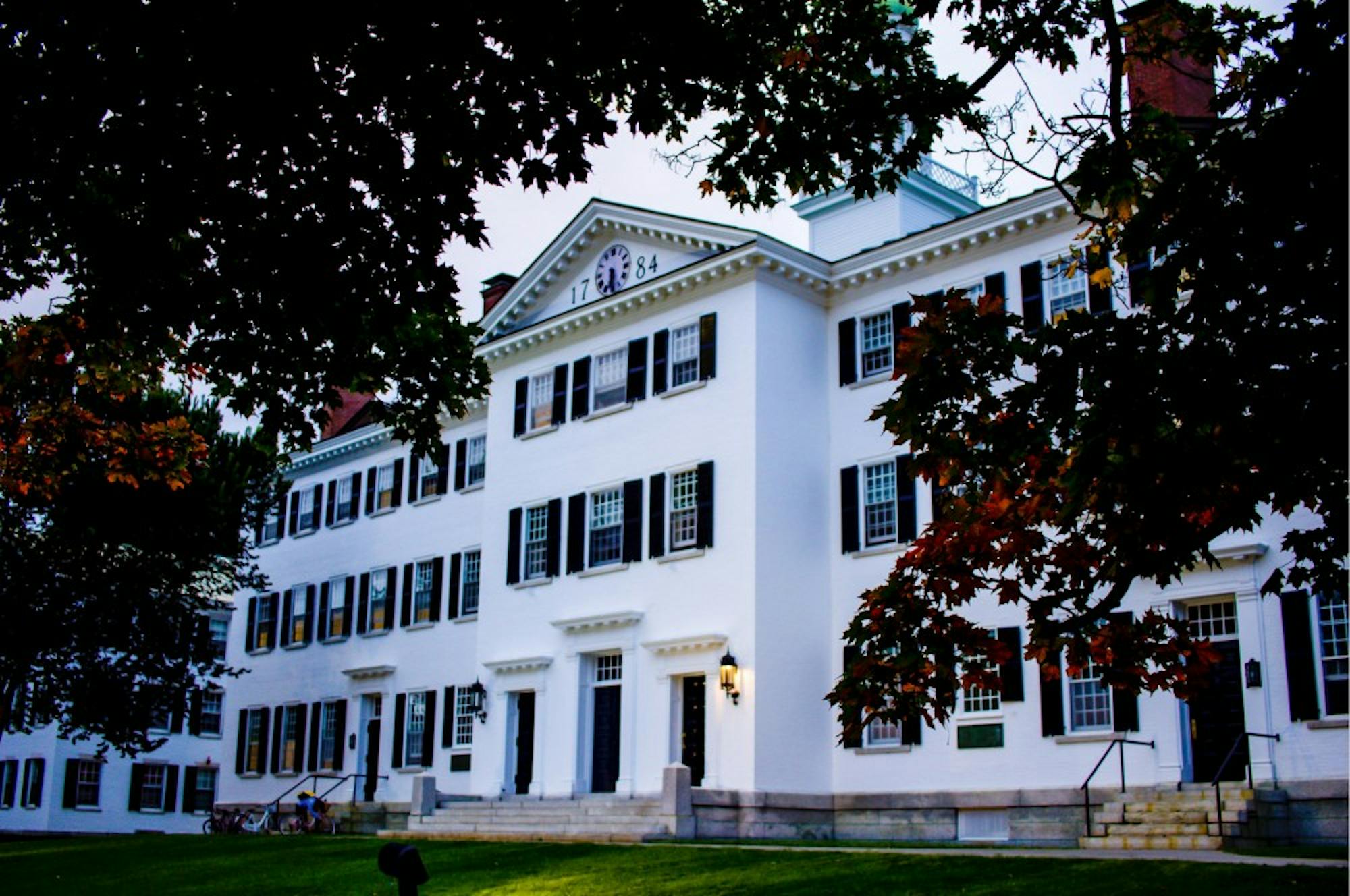At its annual fall meeting, the Dartmouth Board of Trustees authorized $400,000 for planning and feasibility studies to begin the process of renovating Dartmouth Hall and began considering alternate management options for the Hanover Country Club, which is currently owned and operated by the College. The three-day meeting, held from Sept. 13 to 15, was followed by a retreat to the Moosilauke Ravine Lodge.
Renovating Dartmouth Hall is a key initiative of Dartmouth’s $3 billion Call to Lead capital campaign. The College’s ultimate goal is to raise $25 million for the renovation project.
The project is still in the very beginning steps, according to associate vice president for planning, design and construction John Scherding. Next steps include the hiring of architects and consultants to investigate current “deficiencies” in the building in order to begin the design process, he said.
“Some of the systems are getting old and are in need of replacement, repair or upgrade, so we will begin a conceptual design process and cost estimation to determine what the options are for the renovation project,” Scherding said.
According to Scherding, the three main goals of the renovation are accessibility, energy efficiency, and updating systems and facilities to suit the needs of the programs within Dartmouth Hall, which houses some of the College’s foreign language departments along with other classrooms and offices.
The importance of Dartmouth Hall as one of the most historic buildings on campus is also being considered in the planning process, Scherding said. Striking a “delicate balance” between preserving historical elements of the building while supporting 21st century programs will be one of the guiding aspects of the project, he added.
“We absolutely want to respect and preserve the important historic elements of the building,” he said.
Additionally, accessibility for all students was labeled as a chief goal of the renovations, possibly requiring the altering of certain parts of the building. However, Scherding expressed confidence that the necessary updates and changes could take place while still preserving the historical character of the building.
He added that a time frame for the project has not been established, but said that students should not expect renovations to begin in earnest for at least a few years.
Members of the planning team have already discussed the renovations with the dean of faculty and the dean of arts and sciences, and they plan to continue getting feedback on the project from faculty and students who frequent Dartmouth Hall to better understand the day-to-day needs and desires of those who use the building most, he said.
Both students and faculty who frequent Dartmouth Hall expressed that the building’s outdated systems, namely the lack of climate control, detracted from the learning experience inside.
Seysha Mehta ’21, a Spanish minor who has taken classes in Dartmouth Hall, said that updating the building’s air conditioning would greatly improve the student experience inside the building.
“Comfort wise, for students and teachers, it gets really stuffy in [Dartmouth Hall],” Mehta said. “If they had better air conditioning or more ventilation, that would be really good.”
French and Italian lecturer Annabelle Cone further emphasized the need for climate control along with a desire for bathroom facilities to be updated and expanded to upper floors of the building.
“The problem, especially on really, really hot days and really, really cold days, is that it’s either really, really hot or really, really cold in some parts of Dartmouth Hall,” Cone said.
In addition to discussing the Dartmouth Hall renovations, the Board of Trustees gave approval for College staff to investigate entering an external management partnership for the Hanover Country Club. The golf course is currently owned and operated by the College but has been losing a “substantial amount of money” for about the last four years, according to Josh Keniston, chief of staff to executive vice president Rick Mills. Earlier this year, a committee was named to explore the future of the golf course. This potential partnership would lease the land to a separate non-profit group that would manage and operate the golf course, he said.
The formal process will begin later this year, Keniston added, by working with potential partners and ensuring that any prospective management groups have the proper financial backing and business model to make the golf course profitable.
Keniston also noted that there are no plans currently in place for the development of the land, but said that any potential future for the Hanover Country Club would ensure that the land remains in Dartmouth’s hands and open for use as it is a logical place for potential expansion of the College in the future. More details on the project will be released in October; for the time being, the golf course will operate as usual.




